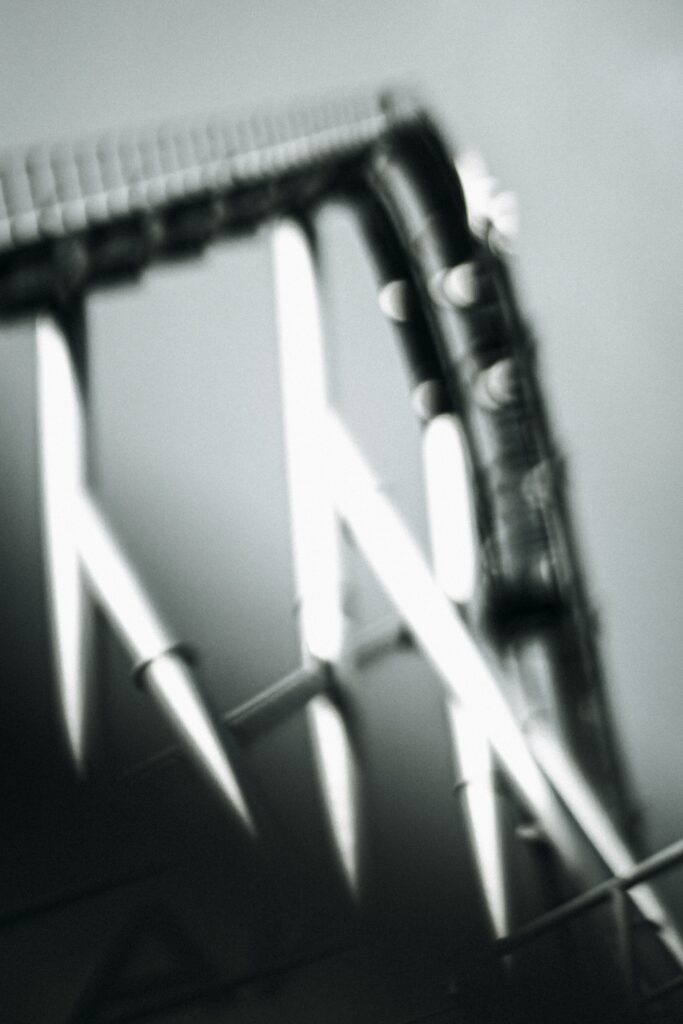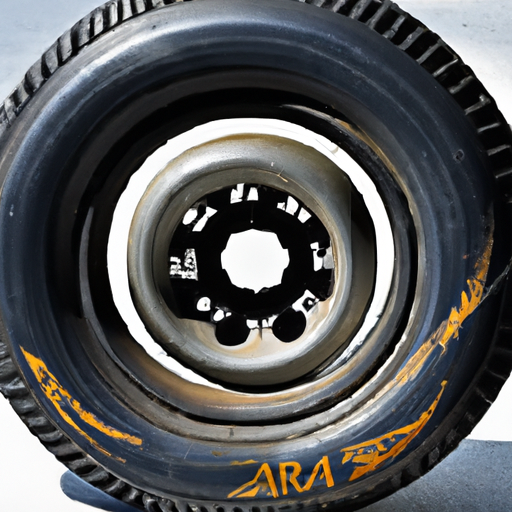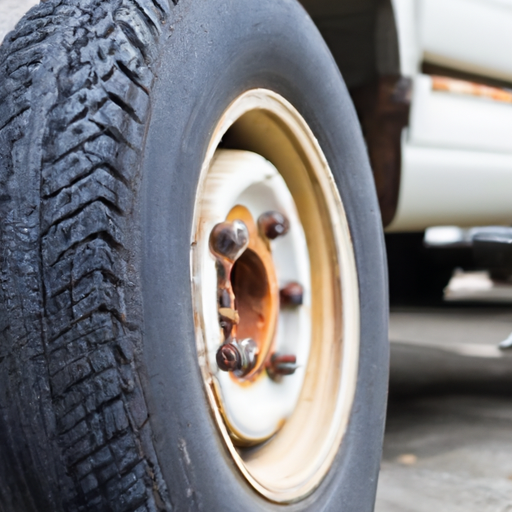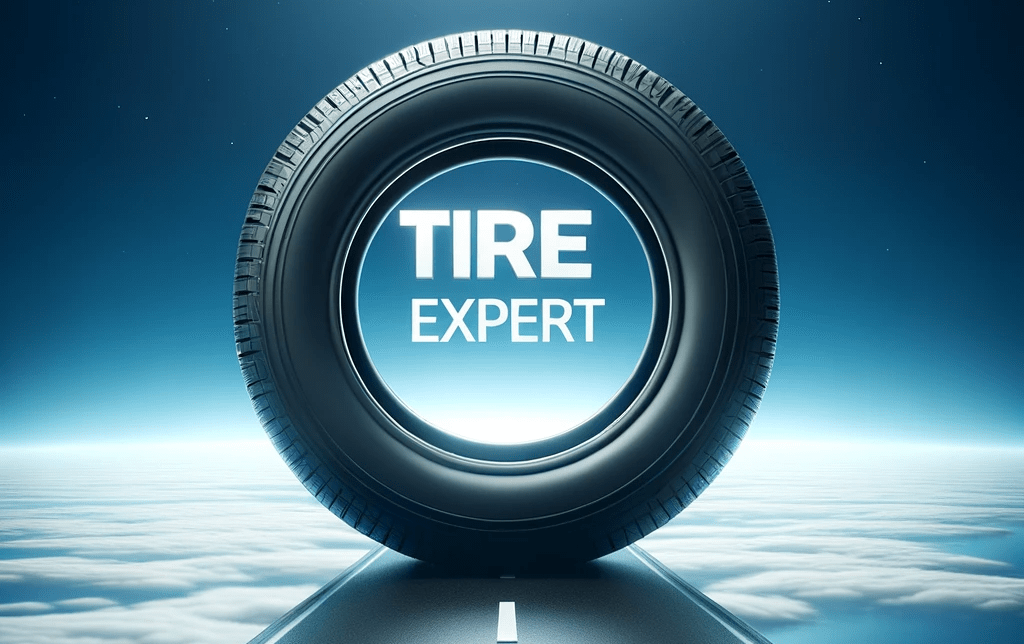You love the feeling of hitting the open road, the wind in your hair, and the sense of freedom that comes with driving. But as time goes on, you start noticing an unwelcome guest on your wheels – corrosion and rust. It’s not just an eyesore, but it can also lead to serious damage if left untreated. So, how can you prevent wheel corrosion and rust? In this article, we’ll explore some effective tips and tricks to keep your wheels looking shiny and new, so you can enjoy the thrill of the road without any worries.

Regular Cleaning
Regularly cleaning your wheels is essential to prevent corrosion and rust. The accumulation of dirt, grime, and brake dust can contribute to the deterioration of your wheels. By incorporating wheel cleaning into your regular car maintenance routine, you can keep your wheels looking their best while also preserving their integrity.
Washing Wheels and Tires
Start by giving your wheels and tires a thorough cleaning using a mild soap or wheel cleaner. Use a soft-bristled brush or sponge to scrub away any dirt and grime, paying close attention to the crevices and hard-to-reach areas. Rinse the wheels and tires thoroughly with water, ensuring that all cleaning products are completely removed.
Removing Brake Dust
One of the biggest culprits behind wheel corrosion is brake dust. It contains tiny particles that can stick to your wheels and eat away at the protective coatings. To remove brake dust effectively, use a specialized wheel cleaner or a mixture of water and gentle dish soap. Spray or apply the cleaner to each wheel, allowing it to sit for a few minutes before scrubbing with a brush. Rinse thoroughly to remove any residue.
Using a Non-Acidic Cleaner
When choosing a wheel cleaner, opt for a non-acidic formula to avoid damaging the wheels’ finish. Acidic cleaners can potentially corrode the surface of your wheels, leading to rust and other issues. Look for cleaning products labeled as safe for all wheel types, including alloy and chrome. Non-acidic cleaners are not only effective at removing dirt and brake dust but also gentle enough to protect your wheels.
Protective Coatings
In addition to regular cleaning, applying protective coatings to your wheels can significantly reduce the risk of corrosion and rust. These coatings act as a barrier, shielding your wheels from the elements and preventing contaminants from penetrating the surface.
Applying Wax or Sealant
One of the most common methods for protecting your wheels is by applying a layer of wax or sealant. These products create a protective barrier that helps repel water, dirt, and other harmful substances. Before applying wax or sealant, make sure your wheels are clean and dry. Use a soft cloth or applicator pad to spread the product evenly across the wheel surface, allowing it to dry according to the manufacturer’s instructions. Regular reapplication is necessary to maintain the protective layer.
Using Ceramic Coatings
For long-lasting and ultra-durable protection, consider using ceramic coatings on your wheels. Ceramic coatings are specially formulated to provide superior resistance to chemicals, UV rays, and high temperatures. They bond with the wheel surface, creating a protective layer that can last for several years. Applying ceramic coatings requires meticulous surface preparation and often necessitates professional assistance for optimal results.
Using Wheel Paint or Plasti Dip
If you have wheels with cosmetic damage or a worn-out finish, consider using wheel paint or plasti dip to protect and refresh their appearance. These products not only provide a layer of protection against corrosion but also give you the opportunity to customize the look of your wheels. Wheel paint comes in various color options, allowing you to match your car’s aesthetic or create a unique style. On the other hand, plasti dip is a removable rubber coating that can be peeled off easily if you decide to change the color or restore the original finish.
Avoiding Harsh Conditions
Protecting your wheels from harsh conditions is key to preventing corrosion and rust. Certain environmental factors and substances can accelerate the deterioration of your wheels, so taking precautions to minimize exposure is essential.
Avoiding Salted Roads
Salted roads are a common sight during the winter months, but they pose a significant threat to your wheels’ well-being. Salt acts as a catalyst for corrosion, speeding up the rusting process. Try to avoid driving on salt-treated roads as much as possible, especially during and after snowstorms. In case you have no choice but to navigate salty streets, make sure to thoroughly wash your wheels afterward to remove any salt residue.
Avoiding Acidic Substances
Whether it’s harsh cleaning agents or accidental spills, acidic substances can wreak havoc on your wheels. Substances like battery acid, certain wheel cleaners, and even some types of detergents can damage the protective coatings and corrode the metal. To prevent this, be cautious when working with or around acidic substances, and if any spills or splashes occur, immediately rinse off your wheels with water.
Park in Covered or Sheltered Areas
Parking your car in covered or sheltered areas can provide additional protection for your wheels. Garages, carports, or any form of covered parking can shield your wheels from harmful elements such as rain, UV rays, and debris. By minimizing exposure to these factors, you can help preserve the condition of your wheels and extend their lifespan.
Proper Wheel Maintenance
Proper maintenance is crucial to keep your wheels in optimal condition and prevent corrosion. Regularly inspecting for damage, repairing or replacing damaged wheels, and ensuring proper tire inflation are important aspects of wheel maintenance.
Regularly Inspecting for Damage
Performing routine visual inspections of your wheels can help you catch any signs of damage or corrosion early on. Look for any chips, scratches, dents, or areas where the protective coatings have worn off. If you spot any abnormalities, address them promptly to prevent further deterioration.
Repairing or Replacing Damaged Wheels
If you notice significant damage or corrosion on your wheels, it’s important to take appropriate action. Small areas of corrosion can sometimes be repaired by professional wheel specialists who specialize in refinishing and restoring damaged wheels. However, extensive damage may require wheel replacement to ensure your safety on the road.
Properly Inflating Tires
Properly inflated tires not only optimize your driving experience but also contribute to the health of your wheels. Underinflated or overinflated tires can cause uneven wear patterns, leading to imbalances and potential wheel damage. Regularly check your tire pressure using a reliable gauge and adjust it to the manufacturer’s recommended levels. By maintaining optimal tire inflation, you can minimize stress on the wheels and promote their longevity.

The Importance of Proper Installation
Proper installation of your wheels is vital to ensure their performance, longevity, and resistance to corrosion. Following recommended guidelines and using suitable accessories are essential steps in achieving the desired fitment and preventing potential issues.
Ensuring Proper Wheel Fitment
To prevent future wheel corrosion, it’s crucial to ensure that the wheels you choose are compatible with your vehicle’s specifications. Each car has specific size, offset, and bolt pattern requirements that should be followed precisely. Incorrect fitment can result in excessive stress on the wheels and lead to accelerated corrosion or other problems. Always consult a professional or refer to the manufacturer’s guidelines to ensure the correct fitment.
Using Appropriate Wheel Accessories
Using the right accessories when installing your wheels is equally important. Lug nuts, bolts, and other fasteners must be compatible with your wheels and meet the manufacturer’s specifications. Cheap or aftermarket accessories may not offer the same level of protection against wheel corrosion. Invest in high-quality, OEM (original equipment manufacturer) or reputable aftermarket accessories to ensure optimal performance and minimize the risk of corrosion.
Torque Wheels to Manufacturer’s Specifications
Properly torquing your wheels during installation is crucial to prevent damage and ensure a secure fit. Over-tightening or under-tightening lug nuts can lead to wheel damage, misalignment, and accelerated corrosion. Always refer to the manufacturer’s recommended torque settings and use a torque wrench to achieve the appropriate tightness. Following these guidelines will help maintain the integrity of your wheels and reduce the likelihood of corrosion.
Using Wheel Covers or Wraps
Wheel covers and wraps are additional measures you can take to protect your wheels from corrosion and other forms of damage. They provide an extra layer of defense against the elements, debris, and potential scratches, keeping your wheels looking their best for longer periods.
Benefits of Wheel Covers
Wheel covers offer various benefits, including protection against harmful UV rays, road debris, and corrosive substances. They can prevent dirt and brake dust from accumulating on your wheels, reducing the frequency of cleaning required. Wheel covers also give your vehicle a customized and polished look, enhancing its aesthetic appeal.
Types of Wheel Covers
There are different types of wheel covers available, ranging from basic snap-on covers to full wheel enclosures. Snap-on covers are the most common and are designed to fit tightly over the entire wheel, providing a protective layer. Alternatively, hubcap-style wheel covers cover only the center portion of the wheel, leaving the outer rim exposed. Choose the type of wheel cover that best suits your needs and preferences.
Benefits of Wheel Wraps
Wheel wraps, also known as vinyl wraps or wheel skins, are another option for protecting your wheels. They are made of high-quality vinyl and can be custom-fit to your specific wheels. Wheel wraps offer similar benefits to wheel covers, including protection against corrosion, UV rays, and minor scratches. Additionally, they allow for greater customization possibilities with a wide range of colors and finishes available.

Avoiding DIY Wheel Repairs
While it may be tempting to tackle wheel repairs and maintenance on your own, it is often best to leave these tasks to the professionals. DIY repairs can result in costly mistakes or further damage to your wheels, compromising their structural integrity and resistance to corrosion.
Leaving Repairs to Professionals
Professional wheel repair specialists have the knowledge, experience, and tools necessary to properly repair and refinish damaged wheels. They can address issues such as scratches, dents, and corrosion, ensuring that the repairs are done correctly. Attempting to repair wheels yourself without the proper expertise can worsen the damage and lead to additional corrosion or even wheel failure.
Avoiding Corrosive Wheel Cleaners
When performing DIY cleaning, it is essential to use non-acidic wheel cleaners as mentioned earlier. Acidic wheel cleaners can be incredibly corrosive and may further damage your wheels’ finish and protective coatings. Avoid using household cleaners that contain strong acids and opt for specially formulated, non-acidic wheel cleaning products recommended by professionals.
Not Overpolishing or Buffing Wheels
Overpolishing or buffing your wheels excessively can remove the protective coatings and expose the metal to potential corrosion. While keeping your wheels shiny and polished is aesthetically pleasing, moderation is key. If you choose to polish or buff your wheels, do so sparingly and follow the appropriate techniques and products recommended by professionals. Overdoing it can be detrimental to the long-term health of your wheels.
Regular Rotation and Balancing
Regularly rotating and balancing your tires is an often overlooked aspect of wheel maintenance but plays a significant role in preventing wheel corrosion and extending their lifespan. Proper rotation and balancing can help distribute the forces evenly, reducing wear on individual wheels and minimizing the likelihood of imbalance-related corrosion.
Importance of Regular Rotation
Front and rear tires wear differently due to factors such as weight distribution, driving habits, and suspension geometry. Regularly rotating your tires helps promote even wear, ensuring that each wheel bears its fair share of the load. By minimizing uneven wear, you can reduce the risk of imbalance-related corrosion and enhance the overall performance and longevity of your wheels.
Balancing Wheels to Reduce Vibration
Balancing your wheels involves redistributing weight to eliminate any imbalances that may cause vibrations while driving. Imbalanced wheels can lead to increased stress and wear on certain areas, potentially resulting in corrosion. Have your wheels balanced regularly by a professional using specialized equipment to ensure optimal performance and minimize the risk of imbalance-related corrosion.
Checking for Alignment Issues
Misaligned wheels can also contribute to uneven wear patterns and imbalance-related corrosion. Incorrect wheel alignment can cause excessive stress on certain areas, leading to accelerated deterioration. Regularly checking and correcting wheel alignment as necessary by a qualified technician can help prevent wheel corrosion associated with alignment issues.

Using Wheel Locks
Wheel locks are anti-theft devices that provide an added layer of protection for your wheels, helping prevent theft and potential damage. While their primary function is security, wheel locks indirectly contribute to preventing wheel corrosion by reducing the likelihood of unauthorized wheel removal.
Benefits of Wheel Locks
Wheel locks act as deterrents to potential thieves, making it more difficult for them to steal your wheels. By requiring a unique specialized key to remove the locks, they provide an extra level of security. Additionally, the presence of wheel locks can dissuade thieves from attempting to tamper with your wheels in the first place. By protecting your wheels from theft, you also safeguard them from potential damage and corrosion during theft attempts.
Types of Wheel Locks
Various types of wheel locks are available, including nut-style locks and bolt-style locks. Nut-style locks replace one of the lug nuts on each wheel, requiring a unique socket for removal. Bolt-style locks, on the other hand, replace one of the lug bolts. Both types offer effective wheel security and can be chosen based on personal preference and compatibility with your vehicle.
Proper Installation of Wheel Locks
Exercising proper installation practices is essential when using wheel locks. Follow the manufacturer’s instructions carefully and ensure that the locks are fitted securely, preventing unauthorized removal. Over-tightening or under-tightening the locks can compromise their functionality and potentially damage your wheels. If unsure, consult a professional to ensure proper wheel lock installation.
Storage Tips
Properly storing your wheels when they are not in use is crucial to prevent corrosion caused by moisture, debris, and other elements. Whether you are storing them for the winter or temporarily, following these storage tips will help keep your wheels in pristine condition.
Clean and Dry Wheels Before Storage
Before storing your wheels, ensure they are thoroughly cleaned and dry. Remove any dirt, brake dust, or other contaminants that could potentially lead to corrosion. Allow the wheels to air dry fully, as residual moisture can promote rust formation. It may be beneficial to apply a coat of wax or a protective wheel sealant before storage for added protection.
Raise Vehicle or Use Tire Racks
When storing your wheels, it is advisable to elevate the vehicle using jack stands or ramps, allowing the wheels to support its weight. This relieves pressure on the tires and helps prevent any deformation that may occur over time. Alternatively, using tire racks specifically designed for wheel storage can provide an efficient and organized solution, keeping your wheels in optimal condition while saving space.
Cover Wheels to Protect from Dust
Using wheel covers or soft fabric covers can prevent dust, dirt, and other airborne particles from settling on your wheels during storage. Even in a clean environment, dust can accumulate over time, and its abrasive nature can potentially lead to corrosion. Covering your wheels provides an additional protective layer, ensuring they remain pristine and corrosion-free until their next use.
By implementing these preventative measures and incorporating good wheel maintenance practices into your routine, you can significantly minimize the risk of wheel corrosion and rust. Regular cleaning, protective coatings, avoiding harsh conditions, proper wheel maintenance, correct installation practices, and utilizing additional protective measures such as wheel covers and wraps will help preserve the integrity and appearance of your wheels. Remember, prevention is key when it comes to maintaining the lifespan and aesthetic appeal of your wheels.


